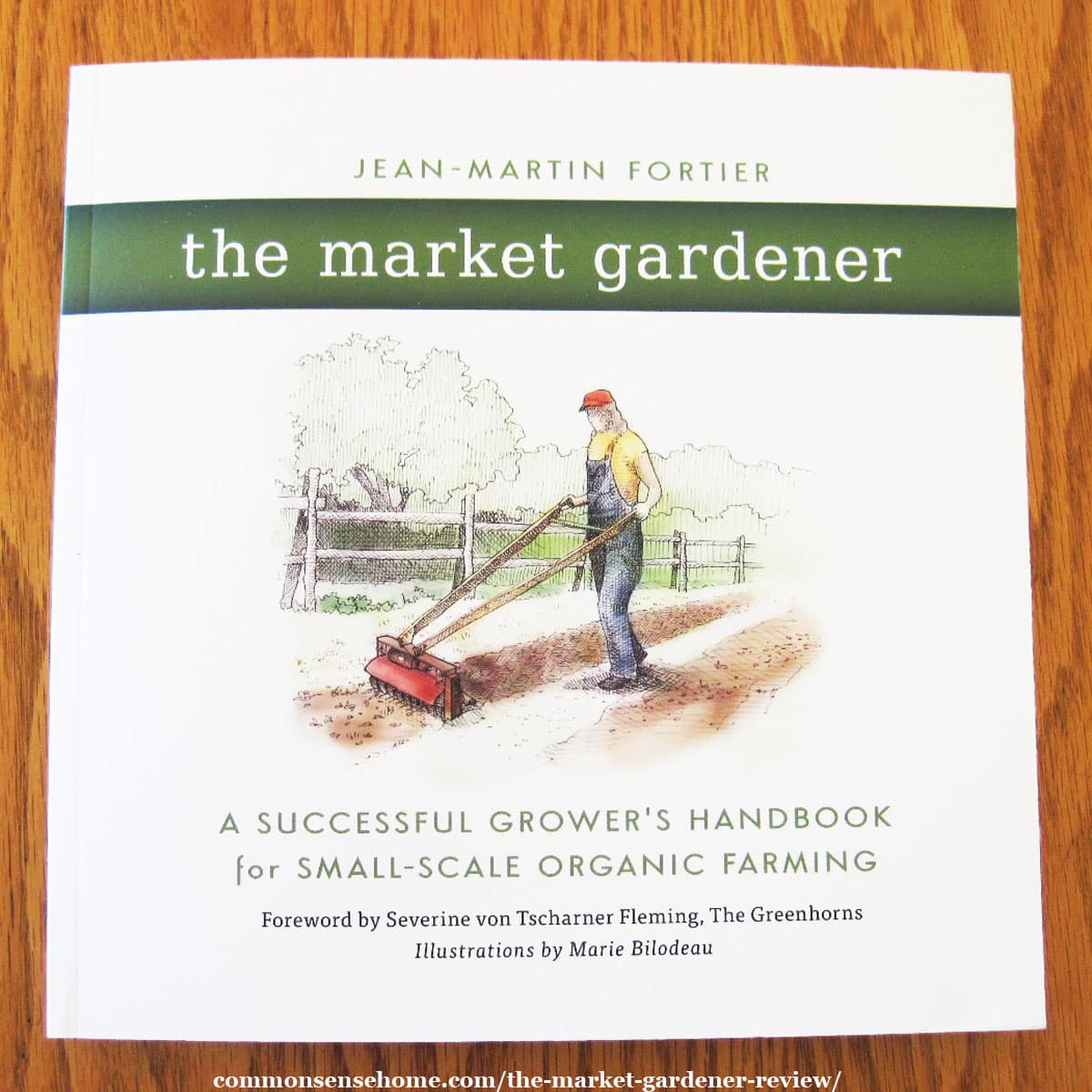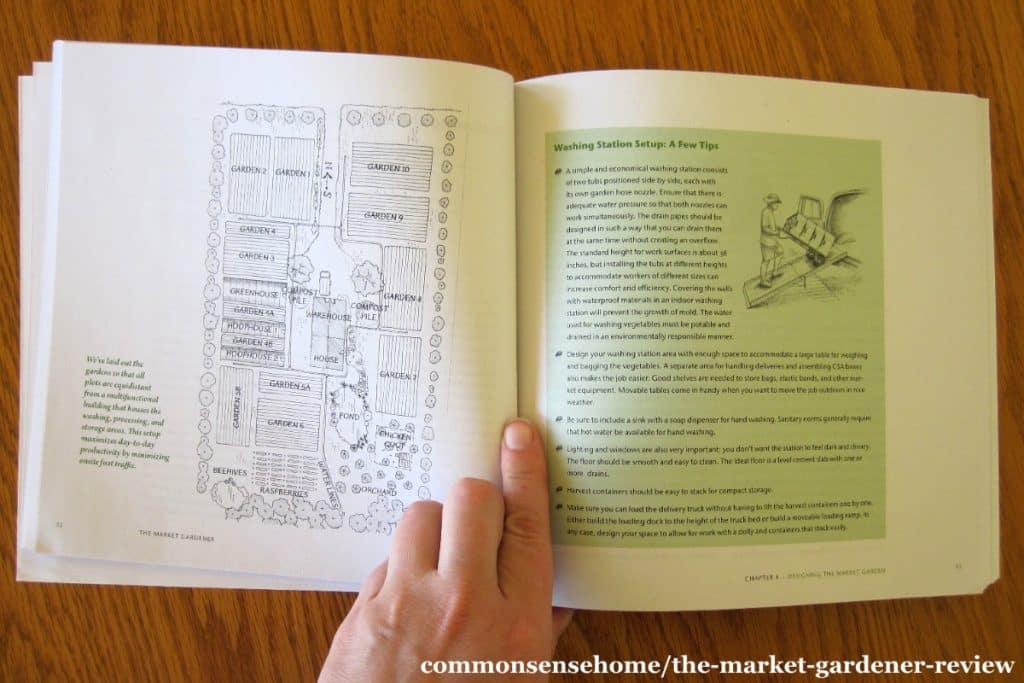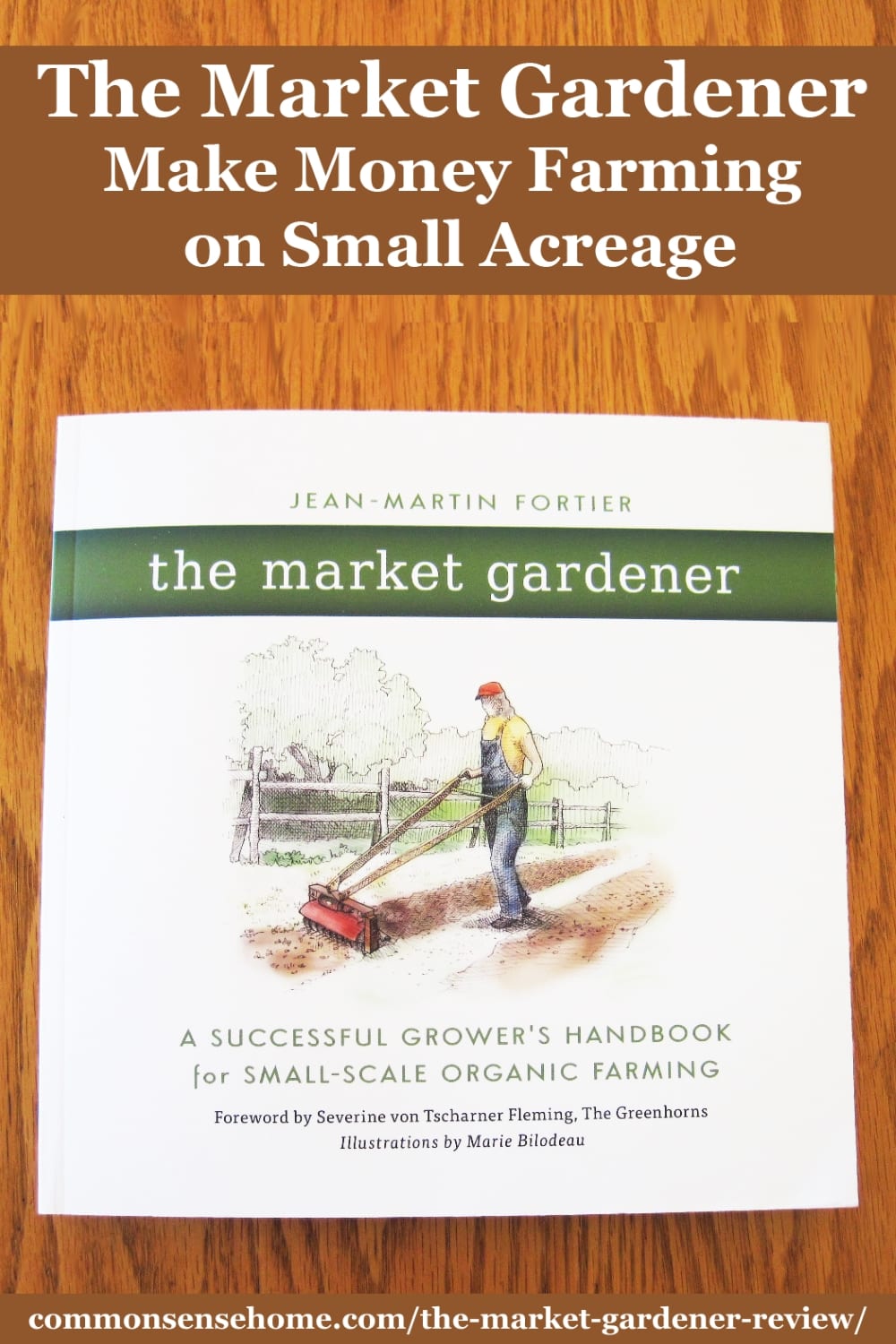The Market Gardener – Make Money Farming on Small Acreage
This post may contain affiliate links. Read my full disclosure here.
The Market Gardener: A Successful Grower’s Handbook for Small-Scale Organic Farming by Jean-Martin Fortier demonstrates that it is possible to earn a good living on a small piece of land, and provides the reader with the tools they need to do it.

With under 2 acres of cultivated land, Jean-Martin and his wife aren’t just small farmers, they’re micro-farmers. They have been supporting their family for the last ten years with just 1 1/2 cultivated acres , and achieving a profit margin of over 40%. I live in a state with large amounts of agriculture, and I know most farmers around here are struggling just to break even, let alone post that sort of profit.
How do they achieve these results? Through strategic planning.
The Market Gardener Success Strategy
- Garden Intensively – Maximize production by optimizing soil fertility, determining the best return per square foot of garden crop, reducing non-productive space and gathering multiple crops per season from the same soil
- Minimize Start Up Cost – Micro-scale production eliminates the need for large, expensive machinery, which is a huge expense for many produce growers. Additional tools/materials can be added over time and sometimes purchased used. Appropriate sizing and uniform sizing between beds allows production enhancers such as tarps, row covers and hoops to be moved within the garden with minimum effort, and allows a single item to be used in multiple locations over the course of the season.
- Minimize Production Cost – by operating on a micro-scale and planning for efficiency of labor, Jean-Martin and his wife minimize the need for outside labor, which typically accounts for 50% of costs of market growers.
- Sell Direct and Add Value – By cutting out the middle man, direct to consumer sales generate maximum return for the market gardener. Focusing on details that add value to the consumer, such as early season vegetables and unique vegetable cultivars, means that their produce can garner a premium price.
What’s In The Market Gardener
The book opens with a general overview, and then takes the reader step by step through the process of creating a successful market garden, including:
- Finding the Right Site
- Designing the Market Garden
- Minimum Tillage and Appropriate Machinery
- Fertilizing Organically
- Starting Seeds Indoors
- Direct Seeding
- Weed Management
- Insect Pests and Disease
- Season Extension
- Harvest and Storage
- Crop Planning
One particular aspect of their cropping strategy that I found personally appealing was that they do not try to harvest a crop year round. This provides them with a couple of months in deep winter to relax and recharge – even take a vacation – before heading back to work with fresh enthusiasm. It allows reduces the need for supplemental light and heating. (They are located in Canada, so some supplemental heating for early season seed starting is a must.)
There are also detailed crop growing notes, sources for tools and supplies, planting schedules and crop rotation charts. Simple line drawings help to illustrate key points throughout the text.
Would you like to save this?

You can hear from the author himself talk about his inspiration for writing “The Market Gardener”:
If you’re ready to “grow better instead of growing bigger”, this may be the right book for you. It’s possible to make a living off the land without a large amount of land. Jean-Martin Fortier and his wife have proved it.
Buy The Market Gardener: A Successful Grower’s Handbook for Small-Scale Organic Farming now.
I received a copy of the book for review. As always, my opinions are my own.
If you have a favorite book for profitable small farming, please share your suggestion in the comments.

You may also enjoy:
- The Weekend Homesteader
- Backyard Farming on an Acre (More or Less)
- How to Make Money Homesteading
- The Lean Farm: How to Minimize Waste, Increase Efficiency, and Maximize Value and Profits with Less Work
Originally published in 2014, updated May 2016. Giveaway was held back in 2014 and is now closed.




